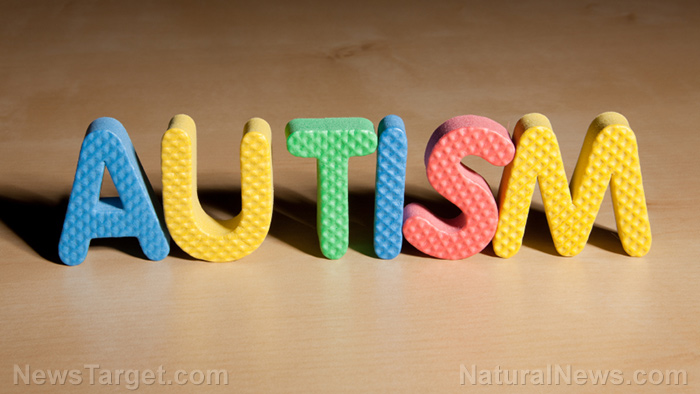Big Pharma thrilled as autism treatment market predicted to reach $11.42 billion by 2028
03/17/2023 / By Belle Carter

Big Pharma companies are reportedly gearing toward comprehensive treatment programs for autism spectrum disorder (ASD). This came on the heels of a recent report that the global ASD treatment market is projected to reach $11.42 billion by 2028.
The study conducted by market research firm 360 Research Reports may have “opened the eyes” of Big Pharma companies as the industry used to deny ASD’s existence and even avoid the slightest discussion of the treatment of autism. But now that the scale of the clinical population of people on the spectrum has been uncovered, these companies have started charting ways to boost their profits through treatment programs.
“For decades, the increase in autism was denied and any discussion of the treatment of autism was met with the same derisive forces that would malign and mischaracterize the parents and physicians trying to give these kids a better day,” said Dr. James Lyons-Weiler, a former University of Pittsburgh faculty member and author of “The Environmental and Genetic Causes of Autism.”
“But now that Pharma has recognized the scale of the clinical population of people on the spectrum, it’s finally considered [acceptable] to admit the increase and to rush headlong into treatment programs.”
The recent study estimated the massive market expansion of up to 7.4 percent compound annual growth rate between now and 2030. It also assessed treatments and drugs used to diagnose and treat ASD, projected future profits by age group, geographic region and other factors and analyzed the top Big Pharma industry players.

According to the report, the industry giants set to profit are Otsuka, which currently controls six percent of the market, followed by AstraZeneca, Pfizer, Eli Lilly, Johnson & Johnson and Roche.
Autism is currently treated by hazardous medications
As per recent statistics, roughly 3.49 percent of children and adolescents aged three to 17 were diagnosed with ASD in 2020. This indicated a 53 percent surge since 2017. The U.S. is considered the largest ASD treatment market, but its biggest market limitation is the lack of approved drugs for treating the condition.
The developmental disability’s symptoms typically are treated with stimulants, anticonvulsants, tricyclic antidepressants, selective serotonin reuptake inhibitors (SSRI) and anxiety medications sold through retail pharmacies, consulting firm Grand View Research reported. About 50 percent of all patients with ASD were treated with at least one of the stated medications, leading to reports concluding that the more people diagnosed with autism, the larger the market for drug sales.
One systematic review found that up to 87 percent of children with autism are prescribed two or more medications simultaneously. Antipsychotics Abilify and Risperdal are the most prescribed medications for treating irritability in children under 12, but they were also found to cause adverse events including serious weight gain, involuntary muscle spasms, addictive behaviors and heart problems.
“That is concerning and suggests possible over-prescription or overuse,” said Dr. Matthew Siegel, vice president of Medical Affairs for the Developmental Disorders Service Line of Maine Behavioral Healthcare.
Toby Rogers, who has a Master of Public Policy degree, commented: “These drugs are incredibly toxic and do not work very well.” He noted that Johnson & Johnson paid $2.2 billion in civil and criminal fines for improperly marketing Risperdal to treat autism and other conditions, and then kept right on doing it. (Related: After paying out $8 billion in fines, J&J now faces 100,000 more lawsuits related to injuries caused by antipsychotic drugs.)
“The fact remains that there is no pill to treat autism, but the market is massive because families are desperate for help,” he said.
Follow AutismTruthNews.com for more news related to the causes and treatments of ASD.
Watch Mrs. Universe and autism activist Heidi Scheer talk about hope and healing for autism on “The HighWire with Del Bigtree” below.
This video is from the High Hopes channel on Brighteon.com.
More related stories:
More than 20 percent of American adults now on psychiatric drugs for behavioral problems.
CDC confirms aluminum in vaccines linked to childhood asthma and AUTISM.
Dementia patients are wildly over-medicated with antipsychotic drugs, study finds.
Prescription euthanasia: Elderly being killed off by antipsychotic drugs… is it on purpose?
Sources include:
Submit a correction >>
Tagged Under:
adverse effects, autism, Autism spectrum disorder, big government, Big Pharma, deception, Johnson & Johnson, lies, Prescription drugs, psychiatric drugs, psychopharmaceuticals, research, toxicants
This article may contain statements that reflect the opinion of the author
